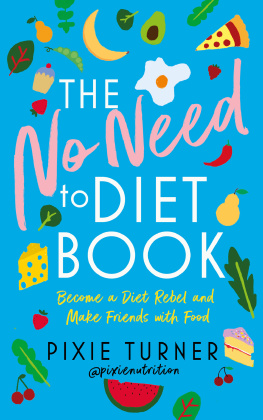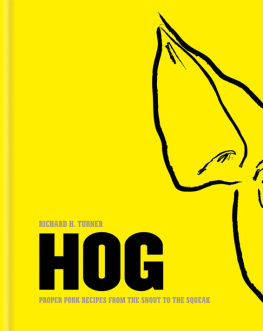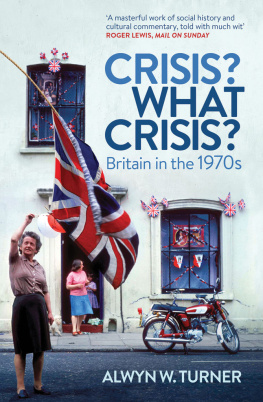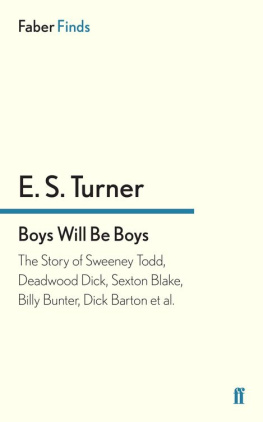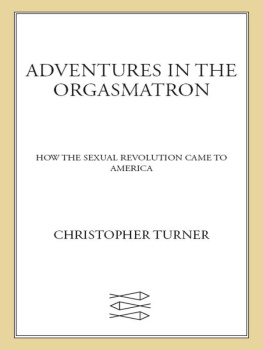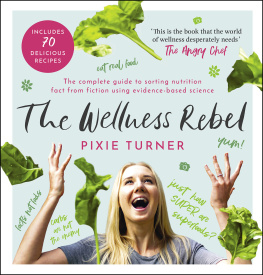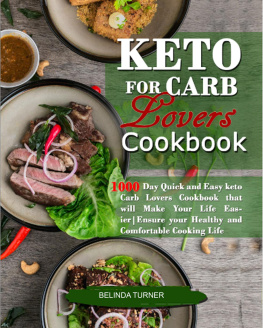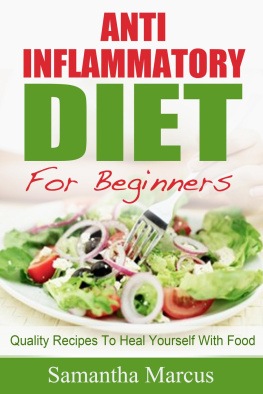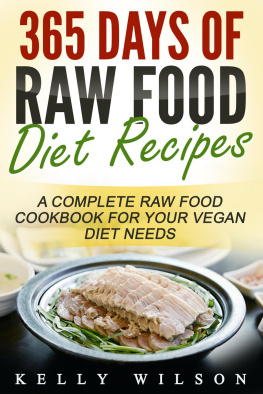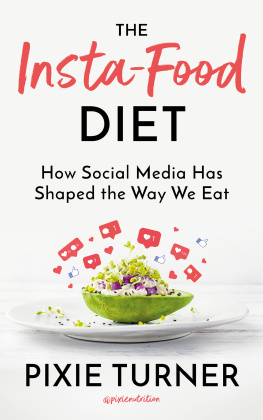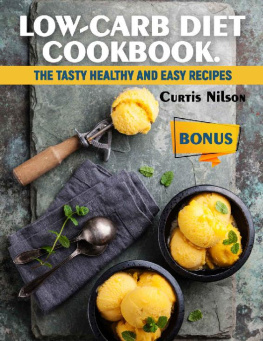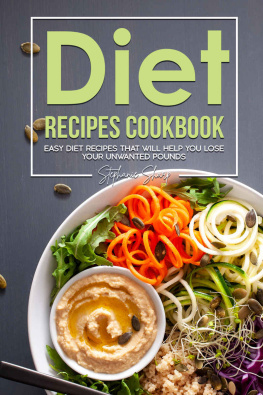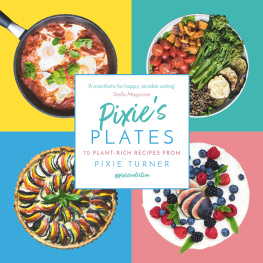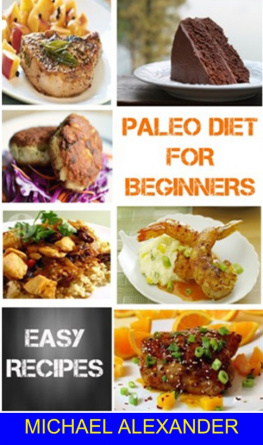Turner - The no need to diet book: become a diet rebel and make friends with food
Here you can read online Turner - The no need to diet book: become a diet rebel and make friends with food full text of the book (entire story) in english for free. Download pdf and epub, get meaning, cover and reviews about this ebook. City: London, year: 2019, publisher: Head of Zeus;Anima, genre: Children. Description of the work, (preface) as well as reviews are available. Best literature library LitArk.com created for fans of good reading and offers a wide selection of genres:
Romance novel
Science fiction
Adventure
Detective
Science
History
Home and family
Prose
Art
Politics
Computer
Non-fiction
Religion
Business
Children
Humor
Choose a favorite category and find really read worthwhile books. Enjoy immersion in the world of imagination, feel the emotions of the characters or learn something new for yourself, make an fascinating discovery.
The no need to diet book: become a diet rebel and make friends with food: summary, description and annotation
We offer to read an annotation, description, summary or preface (depends on what the author of the book "The no need to diet book: become a diet rebel and make friends with food" wrote himself). If you haven't found the necessary information about the book — write in the comments, we will try to find it.
The no need to diet book: become a diet rebel and make friends with food — read online for free the complete book (whole text) full work
Below is the text of the book, divided by pages. System saving the place of the last page read, allows you to conveniently read the book "The no need to diet book: become a diet rebel and make friends with food" online for free, without having to search again every time where you left off. Put a bookmark, and you can go to the page where you finished reading at any time.
Font size:
Interval:
Bookmark:

Plantbased Pixie is a nutritionist (MSc) (AfN), award-winning food blogger, writer and speaker. She has also been featured at many events, in various publications and on BBC World News and Channel 5 as a nutritional expert.
www.plantbased-pixie.com
www.pixieturnernutrition.com
The Wellness Rebel

AN ANIMA BOOK
www.headofzeus.com
This is an Anima book, first published in the UK in 2019 by Head of Zeus Ltd
Copyright Pixie Turner, 2019
The moral right of Pixie Turner to be identified as the author of this work has been asserted in accordance with the Copyright, Designs and Patents Act of 1988.
All rights reserved. No part of this publication may be reproduced, stored in a retrieval system, or transmitted in any form or by any means, electronic, mechanical, photocopying, recording, or otherwise, without the prior permission of both the copyright owner and the above publisher of this book.
9 7 5 3 1 2 4 6 8
A catalogue record for this book is available from the British Library.
ISBN (HB): 9781788547154
ISBN (E): 9781788547178
Images: Shutterstock
Printed and bound in Great Britain by CPI Group (UK) Ltd, Croydon CR 0 4 YY
Head of Zeus Ltd
58 Hardwick Street
London EC 1 R 4 RG
WWW . HEADOFZEUS . COM
To all the researchers, activists, and healthcare professionals who came before me and made this possible
What is health?
Think about that question for a moment. How would you define health? Would you say you are healthy? How important is your health? What would you sacrifice in order to achieve good health?
These are really tough questions, and I dont think there is necessarily one right answer. Health is an elusive term, and one that many people think they understand until theyre asked about it. The most obvious and common answer is that health is the absence of disease. But how can health merely be the state of being free from illness or injury? What if someone has a chronic disease or a genetic condition? Does that mean they are never healthy?
One day, the World Health Organization decided to define health as a state of complete physical, mental and social well-being and not merely the absence of disease or infirmity , a step further than the health = no disease idea. But this has been subject to a great deal of criticism, particularly due to the rise of chronic disease. To be in a complete state of health is nigh on impossible for most people most of the time, and so this goal is quite unrealistic. Also, the WHO definition of health was set in the 1940s, which is quite some time ago, and hasnt been updated since, even though the health landscape has shifted dramatically. Whereas we used to be mostly affected by communicable diseases, like polio or smallpox, now we are faced with chronic conditions that affect people for many years of their life.
Is poor health something that always needs to be fixed? Some would argue that we have a moral responsibility to be healthy, but again, what if thats not possible? If you look anywhere in the media or to public-health initiatives, youll see messages about how were going through a chronic health crisis. But of course, we have an answer to pretty much all these chronic diseases: whether its heart disease or diabetes, the answer is simple we have too many fat people! Put them all on diets and everything will be fine!
 A brief history of diets
A brief history of dietsCan you remember a time in your life without diets? Without either seeing ads about diets, hearing about diets, or being on a diet? Most of us struggle to imagine it.
Ive never been on a traditional diet. Never done Weight Watchers or Slimming World or anything like that. But I have done juicing, clean eating, paleo, veganism, vegetarianism and even a brief attempt at raw veganism.
There are now endless diets to choose from, all with different rules and different methods. Theyre nothing new: diets have been around for ages, recycled over and over again into something that sounds new and exciting.
The British poet Lord Byron popularised the first fad diet in the 1800s. His diet involved drinking three tablespoons of vinegar in a glass of water before a meal to aid weight loss (something that wellness took up again recently, and celebrity physician Dr Oz). The first low-carb diet book came out in the 1860s and was extremely popular. At the end of the 19th century, Horace Fletcher, an American entrepreneur, gained the nickname the Great Masticator, as his diet revolved around you guessed it chewing. You could eat as much as you liked, but each mouthful of food had to be chewed at least 100 times, by which point it would be liquid. In the 1920s, the flappers became popular and so did the fashion for thin, boyish figures for women. This brought along with it the cigarette diet, diet pills, chewing gum, laxatives and contraptions that made outlandish fat-reducing claims. The idea of counting the number of calories in food only took off after American nutrutionist Dr Lulu Hunt Peters published, in 1918, Diet & Health: With Key to the Calories , which encouraged looking at food as calories instead, and so started the trend of eating only a certain number of calories a day. It sold millions of copies throughout the 1920s, becoming the first diet bestseller. Suddenly calories became a big deal.
Then came the Grapefruit or Hollywood diet, tapeworms (seriously?!), the popular Hay diet, Weight Watchers, and the ever-famous Cabbage Soup diet, followed by Atkins and the low-carb revolution that spanned all the way from the 1960s to the early 2000s. Meal-replacement shakes started catching on in the 1970s, which certainly paved the way for the juice and smoothie trend. Now we have weight-loss groups, veganism, low-carb, low-fat, fruitarians, carnivores, juice cleanses, intermittent fasting, detoxes the works.
For a long period of history, food was scarce and so having more than you needed was a sign of wealth and power. But now there is so much food to go around and the power dynamic has shifted. An abundance of food is no longer desirable, so instead we prize having willpower to refuse this abundance. Thinness became power, and diets the way we sought to get there.
But diets go back far beyond the last 200 years. Humans have always been a bit weird when it comes to food. Once we reached the point where we were no longer warding off starvation, we sought additional meaning from food and eating. All of a sudden, we became more aware of the direct connection between eating and death: for us to eat and survive, something must die, whether its plant, animal, or both. By surviving we must kill, and that feels uncomfortable. So we created rituals around death, stories about the afterlife, and we created food traditions that allow us to focus on food as celebration and enjoyment instead of death. This has the added bonus of allowing us to believe we are above other creatures; that we are not just animals weve transcended that.
Overwhelmed by choice, by the threat of mortality that lurks behind any wrong choice, we crave rules from outside ourselves that will keep us safe. People willingly and happily hand over their freedom in exchange for the rules and restrictions that a diet offers, all for the promise of a relief from having to make choices. If you are free to choose, you risk taking full responsibility for your choices, and you can be blamed for anything that happens to you: weight gain, illness, ageing, even death. When we die, we want people to think But they did everything right, not Well, they had it coming.
Font size:
Interval:
Bookmark:
Similar books «The no need to diet book: become a diet rebel and make friends with food»
Look at similar books to The no need to diet book: become a diet rebel and make friends with food. We have selected literature similar in name and meaning in the hope of providing readers with more options to find new, interesting, not yet read works.
Discussion, reviews of the book The no need to diet book: become a diet rebel and make friends with food and just readers' own opinions. Leave your comments, write what you think about the work, its meaning or the main characters. Specify what exactly you liked and what you didn't like, and why you think so.

